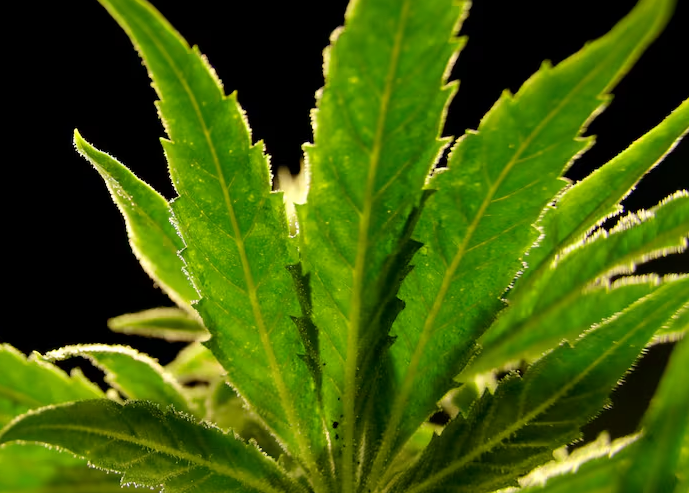The Omaha Tribe of Nebraska has voted to legalise cannabis for adults 21 and over, setting itself apart from the state’s gridlocked stance and asserting its sovereign rights to self-govern. While medical marijuana remains stalled in legal wrangling across Nebraska, the tribe is pushing ahead – no more waiting, no more asking permission.
The move, announced in a press release Tuesday, comes with bold language and a firm message from tribal officials: sovereignty means acting when others won’t.
A Sovereign Stand in the Face of State Inaction
“We are asserting our sovereign rights,” said John Cartier, attorney general for the Omaha Tribal Authority. His words weren’t just defiant; they carried the weight of long-standing frustration.
The state of Nebraska has had cannabis reform stuck in neutral for years. Medical marijuana was greenlit by voters – but implementation has been dragged down by lawsuits and political resistance, much of it tied to Attorney General Mike Hilgers. Even Governor Jim Pillen hasn’t had much to say lately.
Meanwhile, the Omaha Tribe decided enough was enough. One sentence in their press statement summed it up: “The Omaha Tribe is not waiting on broken systems to deliver.”
That’s a jab, no doubt.

What This Means for Nebraska’s Patchwork Policy
For the state, this development puts pressure on an already shaky political posture around marijuana. Nebraska remains one of the few states without a functioning medical marijuana framework. The contrast between tribal and state approaches is getting starker.
What happens now? It’s unclear.
The Omaha Tribe has said adult-use sales will be allowed, but offered no timeline for opening dispensaries or cultivating cannabis. They’ve also not detailed enforcement or regulation.
There’s speculation – but not a peep from the governor’s office. The attorney general? Also silent.
One-sentence summary: Nobody’s said a word from the state side, but pressure is building.
Tribal Nations Leading the Way – Again
This isn’t an isolated event. The Omaha Tribe joins a growing list of tribal nations across the U.S. stepping ahead of their states when it comes to cannabis.
Here’s a snapshot of recent moves:
| Tribe | State | Legal Status | Notable Action |
|---|---|---|---|
| Omaha Tribe | Nebraska | Adult-Use Legalised | Sovereign legalisation, 2025 |
| Oglala Sioux Tribe | South Dakota | Medical & Recreational | Operates dispensaries on Pine Ridge |
| St. Regis Mohawk Tribe | New York | Adult-Use Legalised | Early adopter within tribal laws |
| Suquamish Tribe | Washington | Adult-Use Legalised | Partnered with state regulators |
Tribal governments are recognising cannabis as both a cultural shift and an economic opportunity. In many cases, they’re building their own regulatory systems and opening dispensaries on tribal lands – often years before state governments get their act together.
Economic Hopes, Cultural Considerations
This isn’t just politics. For tribal communities like the Omaha Nation, legal cannabis brings the potential for economic independence. In regions hit hard by poverty and unemployment, a well-run cannabis operation could be transformative.
John Cartier framed the decision around sustainability and values, not just revenue. That said, the business opportunity is massive.
Let’s be blunt:
-
Cannabis sales could bring in millions in revenue.
-
Jobs could be created across cultivation, retail, and compliance.
-
Tax revenue could be reinvested in education, health, and tribal infrastructure.
But this also comes with questions. Who will regulate it? What’s the plan for youth prevention, public health, and licensing? None of that’s been made public yet.
And that’s fine – for now. But the spotlight is on.
Legal Gray Areas and State Silence
The legality of tribal cannabis operations is a tangle of federal, state, and tribal law. Technically, tribes can legalise cannabis on their lands. But off-reservation enforcement, transportation, and banking remain tricky.
This is especially murky in a state like Nebraska where cannabis is illegal across the board.
Could the state challenge the tribe’s authority? Possibly.
Will federal law enforcement get involved? Probably not – especially with the Biden administration taking a hands-off approach to tribal cannabis.
But if a tribal dispensary opens its doors while the rest of Nebraska can’t even get medical marijuana through the gate, expect sparks.
This is a powder keg. Whether it goes off depends on how the state reacts – or doesn’t.
What’s Next? Eyes on the Tribe and the State
There’s a pause in the air.
Right now, the tribe has the law. The state has the silence. The people – both tribal members and Nebraska residents – are watching.
Will the Omaha Tribe lead with a retail-first approach? Or will they start with cultivation behind the scenes? There’s been no clear announcement.
But one thing’s certain: they’ve moved.
And Nebraska’s been left behind, again.
